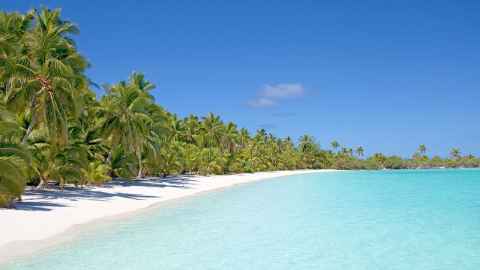NZ-Pacific bubble should come first
28 May 2020
Opinion: Quarantine-free travel between NZ and Pacific Islands should be our priority, ahead of plans to extend our bubble to Australia, writes Collin Tukuitonga.

Much has been made of the desirability of a ‘trans-Tasman’ bubble with quarantine-free air travel as a priority. There are compelling reasons for this idea and it is politically difficult to ignore.
However, Australia is showing continuing transmission of Covid-19 which presents a risk to Aotearoa New Zealand and the Pacific islands. Australia reported 15 new cases on May 25, 2020: Most of the islands, on the other hand, are still Covid-19-free.
In my view, quarantine-free travel between New Zealand and selected Pacific Islands should be the priority. Here are four reasons why:
- The risk of introducing Covid-19 into New Zealand from the islands is near-zero. Conversely, when New Zealand is Covid-19-free for 28 days, the risk to the islands is near zero. I am suggesting that the priority islands are Cooks, Niue, Samoa, Tokelau and Tonga. Fiji could now be included in a New Zealand bubble as that nation was Covid-19-free for 35 days at the time of writing.
- The economic benefits to these islands are enormous. Tourism from New Zealand would recommence with minimal Covid-19 risks and trade would resume. The economic benefits to small island economies cannot be overstated and most islands would welcome early restoration of economic activities to offset the damage brought on by the pandemic lockdowns.
- New Zealand is the transit point for travel to and from these islands. Auckland is the home for many extended families from the islands and most Pacific communities would welcome the ability to reconnect with families and whanau. It is also the specialist hub for medical referrals from the islands.
- New Zealand has constitutional obligations to realm nations of the Cook Islands, Niue and Tokelau. Furthermore, it has a Treaty of Friendship with Samoa and long historical relationships with Tonga. In the case of Niue, Air New Zealand is a lifeline bringing in much needed medication, goods and essential services. In short, we are family, whanau, ohana.
Overall, the island governments have done a great job in keeping Covid-19 away. The Cooks, Niue, Samoa, Tonga and Tokelau remain free of the virus. Even US-affiliated states in the North (Federated States of Micronesia, the Marshall Islands, Palau) and Tuvalu, Kiribati, Nauru are still Covid-19 free
This achievement is largely the result of their early responses in declaring a state of emergency. Most islands closed their borders to all flights early on in the pandemic and many still remain closed to outside travellers, despite this meaning some of their own citizens getting stuck overseas. For example, 120 Samoan seafarers are not able to return from Europe and there is a Tongan rugby team stuck in New Zealand.
These measures have been supported by their communities. In Niue, the community lodged a protest asking the government to shut their border completely. Many of the island communities were spooked by the measles outbreak that killed more than 80 people in Samoa, mostly children. As a result, Samoa has been one of the most decisive in protecting citizens from Covid-19.
Health professionals have been supportive of these measures. Many are concerned they will not be able to cope if there is an outbreak in the islands.
Island governments are cautious about opening their borders although restrictions have been lifted, for example, schools opening and churches resuming, and most residents are concerned about the introduction of the virus from New Zealand. At this stage, only Fiji has been openly seeking to join a New Zealand bubble.
But once New Zealand is 28 days free (two incubation periods of 14 days,) it will be safe to allow travel between here and the islands I have mentioned.
Dr Collin Tukuitonga is the inaugural Associate Dean Pacific, Faculty of Medical and Health Sciences.
This article reflects the opinion of the author and not necessarily the views of the University of Auckland.
Used with permission from Newsroom NZ-Pacific bubble should come first 28 May 2020.
Media queries
Alison Sims | Research Communications Editor
DDI 09 923 4953
Mob 021 249 0089
Email alison.sims@auckland.ac.nz